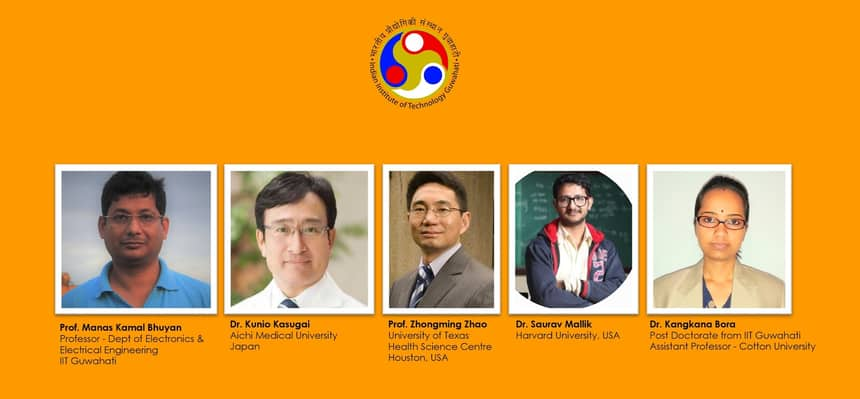Frontlist | IIT Guwahati Scientists Develop Automated System To Detect Colorectal Cancer
Frontlist | IIT Guwahati Scientists Develop Automated System To Detect Colorectal Canceron Mar 04, 2021

The research team plans to commercialize the technology in the future. The team also proposes to implement their analytical approach into a computational tool for easy use.
A team of researchers from the Indian Institute of Technology (IIT) Guwahati led by professor Manas Kamal Bhuyan of the Department of Electronics and Electrical Engineering have designed an automated Artificial Intelligence-based system to detect colorectal cancer using colonoscopy images. The researchers have published results of their work in the journal Scientific Reports.
The paper has been co-authored by Dr. Kangkana Bora of Cotton University, Guwahati, Dr. Kunio Kasugai of Aichi Medical University, Japan. Prof. Zhongming Zhao from the University of Texas, Health Science Centre, Houston, USA, and Dr. Saurav Mallik of Harvard University, USA.
“We have developed an innovative automated system that can help the physician rapidly and accurately detect colorectal cancer from colonoscopy images,” says Prof. Bhuyan.
IIT Guwahati says colorectal cancer is the third most common type of cancer among men and women in India. The commonly used technique to detect colorectal cancer is colonoscopy, in which the specialist visually inspects the image obtained by the camera inserted into the colon of the subject. In this manual approach for colonoscopy examination, observation bias may sometimes lead to an erroneous diagnosis.
Assisted by then-post doctorate student, Dr. Bora, Prof. Bhuyan analysed real colonoscopy images generated by Dr. Kasugai to develop the AI based cancer detection system.

The multi-institutional team extracted the shape, texture and color components of abnormal tissue growths (polyps) through artificial intelligence algorithms using different filters.
“Our extensive experiments show that the proposed method outperforms the existing feature-based (conventional) approaches for colonic polyp detection,” the authors write in their paper.
To evaluate the robustness of their system, the researchers compared their work with four classical deep learning models and found theirs to be better than others.
“Our AI algorithm can be easily integrated with the current methods of diagnosis, which is a significant USP for this work,” says Dr. Kangkana Bora, previously a Postdoctoral student of IIT Guwahati and currently Assistant Professor at Cotton University.
The research team plans to commercialize the technology in the future. However, before commercialization, they have laid out a research plan to finetune their system. The team also proposes to implement their analytical approach into a computational tool for easy use.
“The work we have reported only focuses on single frames selected by the doctors. In future, we will integrate it with video tracking and automatic frame selection”, says Prof. Bhuyan.
Read More: IIT Madras Establishes High Altitude Laboratory At Munnar In Western Ghats
Source: NDTV



.jpg)






.jpg)

.jpg)

.jpg)

.jpg)
.jpg)










Sorry! No comment found for this post.